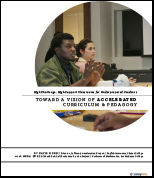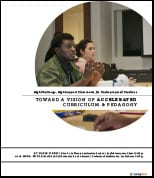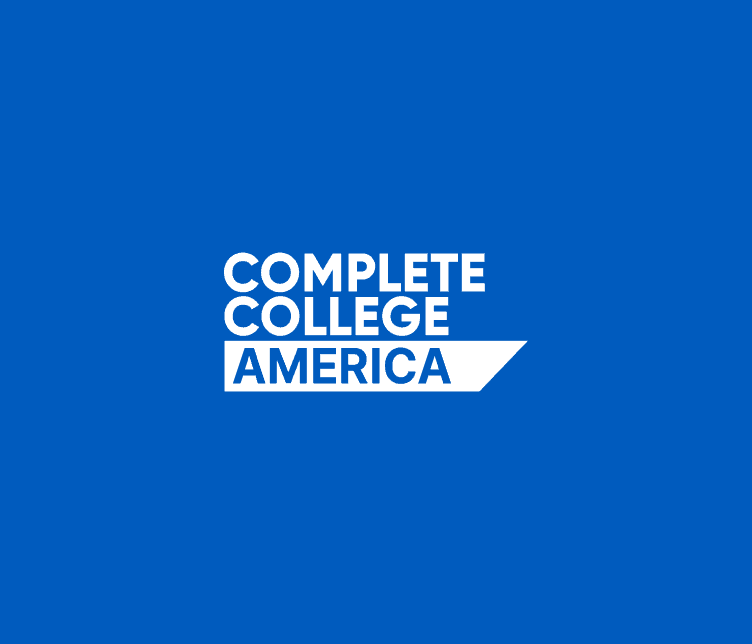 When faculty first encounter the Core Principles for Transforming Remediation, they often wonder how it’s possible to replace multiple semesters of remediation with co-requisite models like the ones advocated by Complete College America. Are teachers just going faster? Are weaker students falling hopelessly behind? Or are community colleges just giving up their open access missions and cutting students placed into the lower levels?
When faculty first encounter the Core Principles for Transforming Remediation, they often wonder how it’s possible to replace multiple semesters of remediation with co-requisite models like the ones advocated by Complete College America. Are teachers just going faster? Are weaker students falling hopelessly behind? Or are community colleges just giving up their open access missions and cutting students placed into the lower levels?
These are questions that my colleagues and I are working to address in the California Acceleration Project (CAP), a state-funded initiative of the California Community Colleges’ Success Network (3CSN). CAP supports community college faculty to shorten and redesign their developmental English and math curricula to increase student completion. An important part of this work involves helping faculty shift from more traditional, decelerated instruction toward accelerated models that combine high challenge with high support.
Our approach is described in the brief, Toward a Vision of Accelerated Curriculum and Pedagogy, recently released by LearningWorks. In our decades of experience in the classroom, my co-author Myra Snell and I have seen that students classified as “under-prepared” in reading, writing, and math – including those with very low placement scores – are much more capable than is generally assumed, and that under the right conditions, teachers can facilitate rapid growth in students’ academic literacy and quantitative reasoning.
We argue that to improve outcomes among underprepared students, faculty must make a break from traditional models of remediation, in particular, the assumption that students have to start with “the basics” and then gradually build their way up to more complex, “college-level” tasks – for example, the idea that students must master grammar before writing paragraphs, and write simple personal essays before attempting a multi-source synthesis.
In CAP, we don’t believe that the basics should be separated out and front-loaded before students can tackle more challenging – and frankly, more interesting – tasks. Instead, we believe under-prepared students need to engage with college-level skills, content, and ways of thinking. They need to reason their way through open-ended questions on topics that matter. They need to think. And if, along the way, we see that they are weak in some of the basics, we need to build in targeted, just-in-time support to help them be successful.
Developmental education is under an uncomfortable microscope these days, and faculty providing traditional remediation can sometimes feel like their work is being discounted in policy discussions about college completion. But the current system of remediation is clearly broken, and as teachers, it’s time to rethink our approach. We hope that Toward a Vision of Accelerated Curriculum and Pedagogy can serve as a resource in the larger reform effort, empowering faculty with a concrete vision of the possible, and a set of principles and practices for helping students meet their educational goals.
Posted by Katie Hern, Ed.D.
Director, California Acceleration Project
English Instructor, Chabot College


